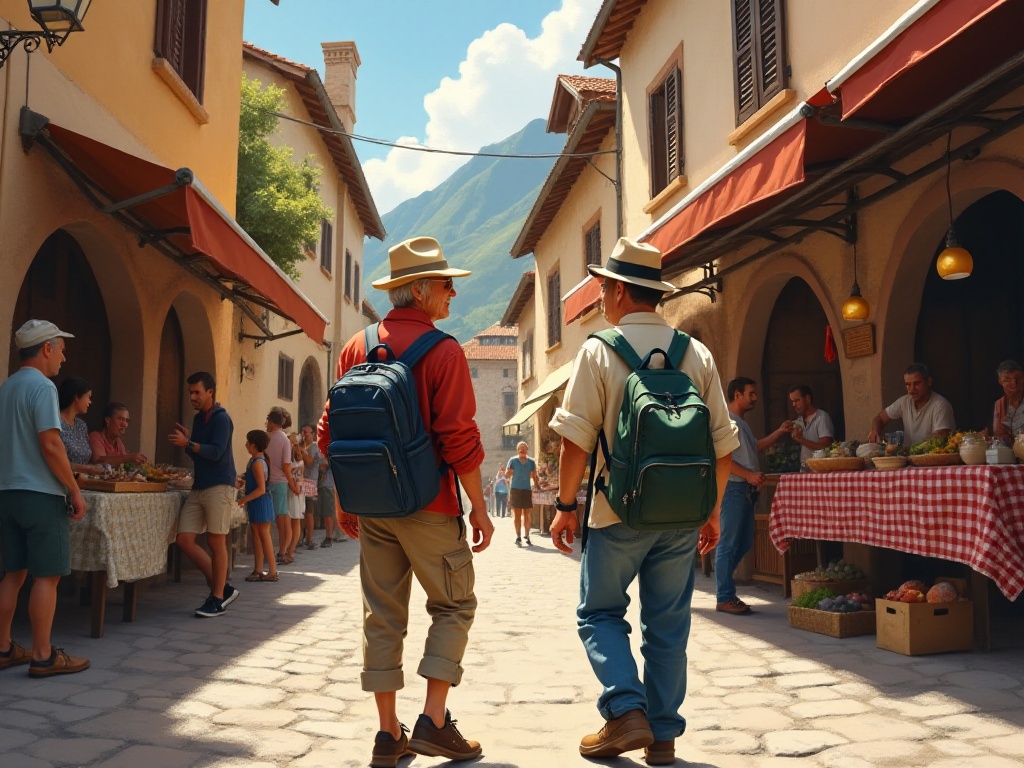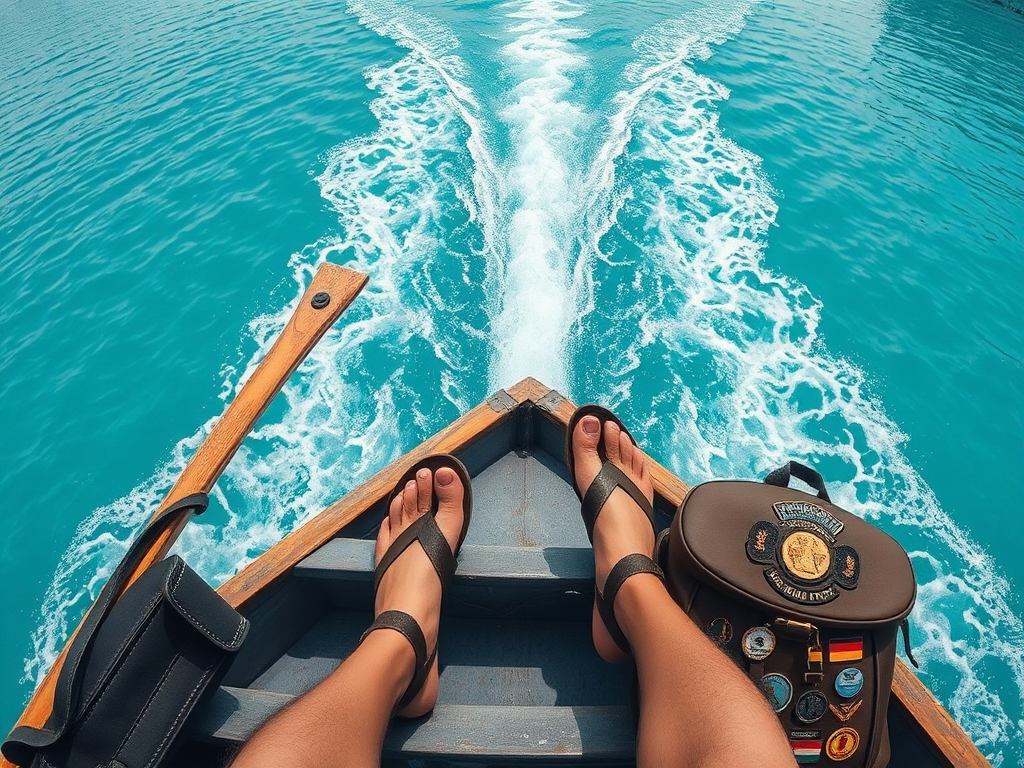That summer afternoon in 2023, I sat in my cubicle, staring blankly at my computer screen. After three years of continuous work, the fatigue made me contemplate the meaning of life. Finally, I made what many considered a "crazy" decision - quitting my job to take a gap year. At that time, I knew nothing about backpacking culture, not even how to choose basic travel equipment. I simply wanted to escape my monotonous life and experience a completely new lifestyle.
That afternoon, I packed up my belongings from my desk and said goodbye to my colleagues. Some said I was too impulsive, others envied my courage, and some thought I would regret it and return soon. But by then, I was determined to find another possibility in life. Looking back now, it was this seemingly impulsive decision that completely changed my perspective on travel and redefined my understanding of life.
Before departing, I spent two whole weeks researching what it means to be a backpacker. The term "backpacker" sounds cool, but what does it actually feel like to become one? I remember the first time standing at the airport with my 30-liter backpack, feeling like an explorer about to embark on a journey, filled with both anticipation and nervousness.
Through deep research, I discovered that backpacking isn't a new phenomenon, but rather a unique travel culture that has existed for many years. This culture emphasizes exploring the world independently with just essential items in a backpack, using the most economical means possible. Backpackers typically choose to stay in hostels, use public transportation, and eat at local markets - not only to save money but more importantly to immerse themselves in local culture.
During my preparation, I found that the backpacking community was far more diverse than I had imagined. It wasn't limited to young people but included travelers from various age groups and professional backgrounds. While researching online, I came across many amazing stories: recent graduates setting off before entering the workforce, mid-career professionals who quit their tech jobs to travel the world, and retired couples pursuing their youthful dreams.
What surprised me even more was a group called "digital nomads" who maintain their income through online work while traveling. These freelancers or remote workers treat the whole world as their office. Their existence made me realize that work and travel aren't necessarily mutually exclusive choices.
During my pre-departure preparation, I joined several backpacker chat groups where shared experiences proved invaluable. People shared advice on choosing suitable backpacks and equipment, discussed tips for various destinations, and exchanged visa application experiences. This information not only helped me prepare practically for travel but more importantly helped me understand that becoming a backpacker isn't about age or experience, but rather about having a heart that yearns to explore and learn.
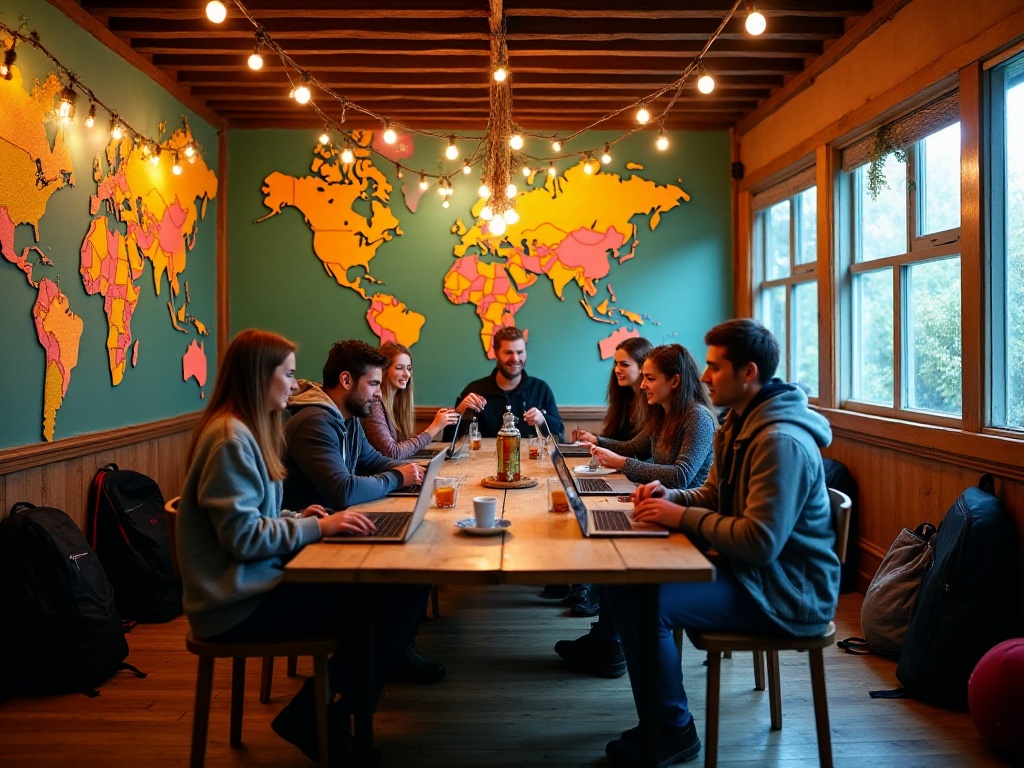
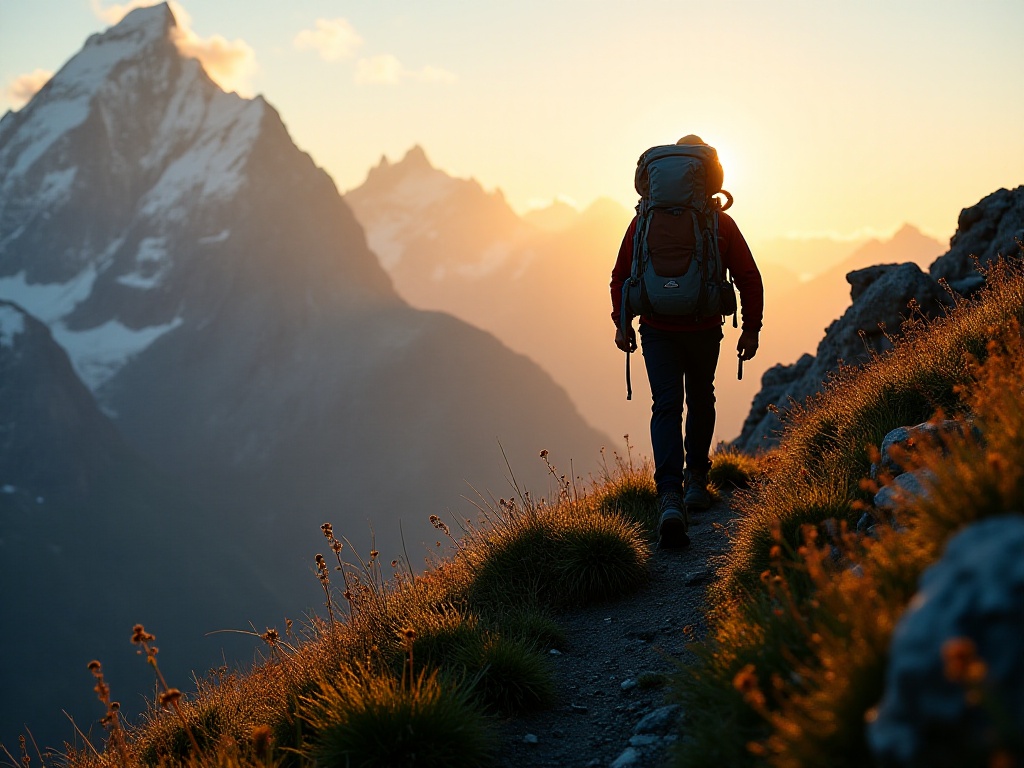
On my first day in Bangkok, I felt like a complete newcomer to the world. I remember spending nearly an hour at Suvarnabhumi Airport trying to find the airport express to the city center. When first attempting to use the BTS (Bangkok Transit System), I fumbled with the station map and almost missed my stop. But it was these somewhat awkward experiences that made me gradually fall in love with figuring things out on my own.
I chose to stay in Bangkok's famous backpacker hub - Khao San Road. Though noisy, this street was the perfect starting point for my backpacking career. My hostel was a converted old house with wooden beds and vintage décor, but most importantly, it had a lively common area. Every evening, travelers from around the world would gather there to share their daily experiences and travel stories.
One evening, I met Sarah, a girl from Canada. She had been traveling in Southeast Asia for three months and shared many practical travel tips. She taught me how to bargain at Thai night markets, find good and cheap street food stalls, and even how to use the local ride-hailing app Grab. These seemingly simple tips greatly enhanced my travel experience.
In Chiang Mai, I met the most memorable travel companions of my journey - Klaus and Maria, a couple from Germany. Both 65 years old, they maintained an enviable vitality and curiosity. They told me they had been traveling the world for three years, living on a monthly retirement pension of 3,000 euros, staying in moderately priced hotels, using local transport, and leading a simple but fulfilling life.
Klaus and Maria's lifestyle opened my eyes. They didn't seek luxury accommodations but focused more on interacting with locals. Wherever they went, they would shop at local morning markets and cook in their hostel's communal kitchen. They said this not only saved money but more importantly helped them truly understand local lifestyles. Listening to their experiences from around the world made me realize that backpacking isn't just for young people but a lifestyle that transcends age.
In a Chiang Mai temple, I tried meditation for the first time. That peaceful morning, as sunlight streamed through the ancient temple windows and only the monks' chanting could be heard, helped me begin to contemplate the essence of life and understand that travel isn't just about sightseeing but also a journey of spiritual exploration.
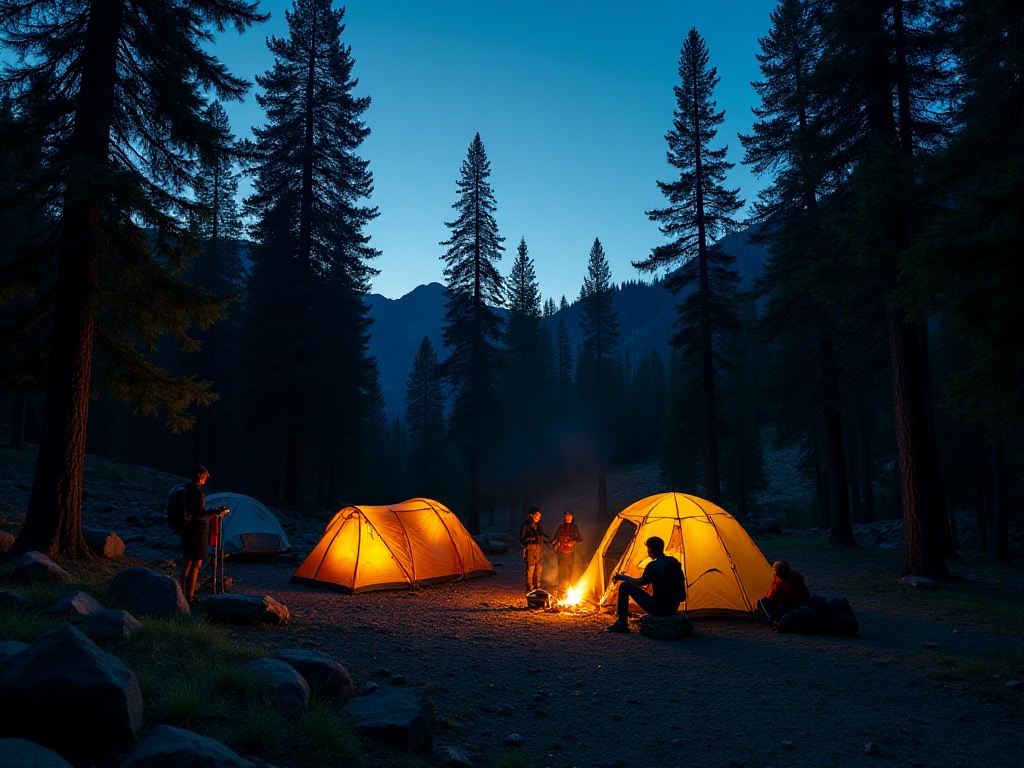
In Vietnam, I began to explore more diverse ways of traveling. In Hoi An Ancient Town, I rented a bicycle to navigate through the streets lined with yellow walls and red tiles. Hoi An is particularly beautiful in the morning when sunlight bathes the ancient buildings in a golden glow. I often rode aimlessly through the streets, occasionally stopping at a coffee shop for a Vietnamese coffee, watching street life slowly awaken.
One day, I met a local elderly man who spoke some basic English. Through our conversation, I learned he was a former carpenter who had participated in restoring many of Hoi An's ancient buildings. He took me to several old houses rarely visited by tourists, sharing the stories behind each building. This experience taught me that true travel isn't about rushing through tourist spots but understanding a place's history and culture through interactions with locals.
In Sapa, I tried hiking and camping for the first time. Honestly, I barely slept the first night. The insects chirped incessantly outside the tent, occasionally interrupted by strange animal calls. Mosquitoes were everywhere, and despite using repellent, I was covered in bites. However, lying on the grass outside my tent, gazing at the stars while listening to the crackling campfire, created a sense of unity with nature that no five-star hotel could provide.
In Hanoi, I encountered the journey's major turning point. At a hostel near Hoan Kiem Lake, I met Emma from Australia. She was a digital nomad providing graphic design services to clients online. Every morning, she would work for a few hours at nearby cafes with her laptop, explore the city in the afternoon, and handle some simple emails in the evening before participating in hostel activities.
Emma's lifestyle gave me new perspectives on future work and life. Work doesn't have to be confined to a fixed office, nor does life need to be limited to one city. With just a laptop and stable internet connection, any corner of the world can become an office. This free and flexible way of working perfectly combines work and travel.
In my final days in Vietnam, I began learning basic web design, contemplating whether I too could become a digital nomad. Though this path might not be easy, it showed me a new possibility.
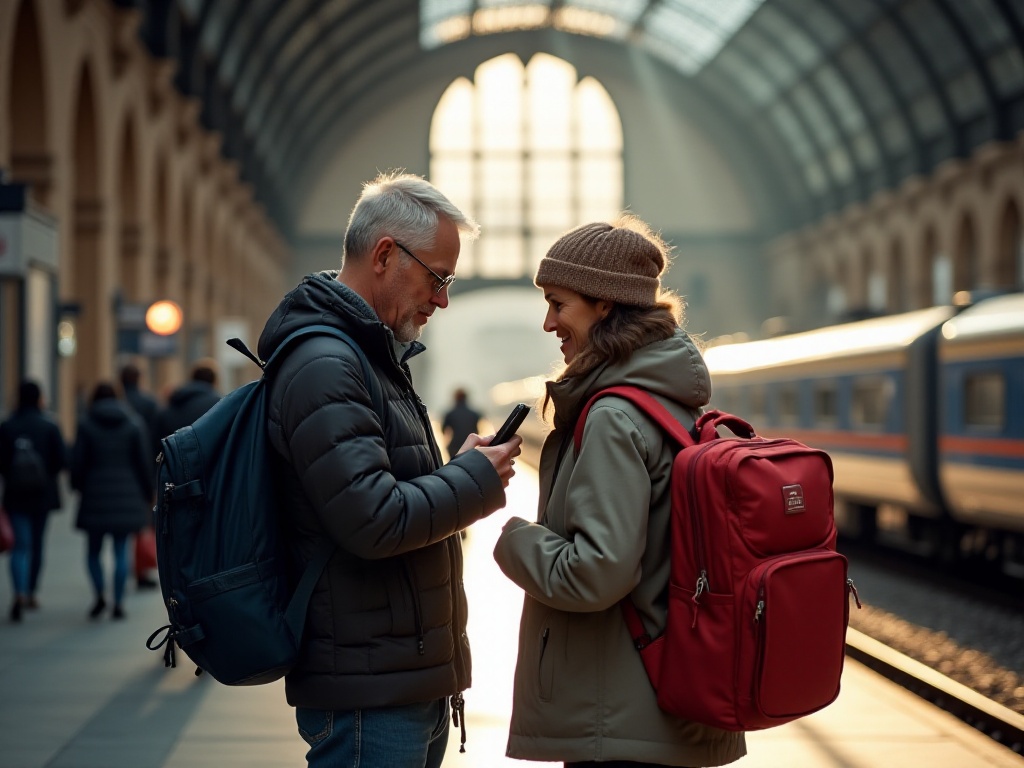
After six months of travel, I've gathered some useful experiences. First is about luggage selection, perhaps the most challenging issue for every backpacker. My advice is: always keep valuables with you and choose functional clothing. After multiple trials and errors, I finally found the most suitable luggage configuration for myself.
Regarding clothing, I highly recommend a waterproof quick-dry shirt. This shirt accompanied me for six full months, from Thai beaches to Vietnamese mountains, from hot days to cool nights, adapting perfectly to various environments. Most importantly, its quick-dry feature is especially suitable for long-term travel - wash it at night and wear it the next day, saving many laundry hassles.
Besides clothing, I paid special attention to electronic devices. A high-capacity power bank is essential because many places might lack power outlets or have incompatible socket standards. I also carried a universal power adapter, which proved particularly useful when traveling between different countries.
Regarding backpack selection, my advice is don't blindly pursue large capacity. I initially chose a 65-liter backpack but found it completely unnecessary. Later switching to a 30-liter pack not only made carrying easier but also forced me to minimize luggage. Remember one principle: in travel, you'll never regret bringing too little, only bringing too much.
For accommodation, my experience is don't be limited by the notion that "backpackers must stay in hostels." Choose accommodation flexibly based on destination and budget. For instance, in cities like Singapore, hostels are indeed the most economical choice due to generally expensive accommodation. However, in small Laotian cities, spending a bit more on local guesthouses can provide more authentic experiences.
In Luang Prabang, I stayed at a particularly distinctive guesthouse converted from a century-old house. The owner was an English-speaking elderly lady who prepared traditional Laotian breakfast every morning and taught guests how to make traditional Laotian snacks. Such experiences are impossible to find in chain hotels or hostels.
Regarding transportation choices, my advice is to try local commuting methods whenever possible. In Bangkok, I chose BTS and subway; in Hanoi, motorcycle taxis; in small Laotian cities, bicycle rentals. This not only saves money but more importantly allows you to truly experience local lifestyles.
For food, I especially recommend local morning or night markets. These places offer the most authentic food at affordable prices. However, pay attention to hygiene - my experience is to observe which stalls locals queue for, as these usually serve safe food. Also, carrying some common medicines is important, especially for digestive issues and pain relief.
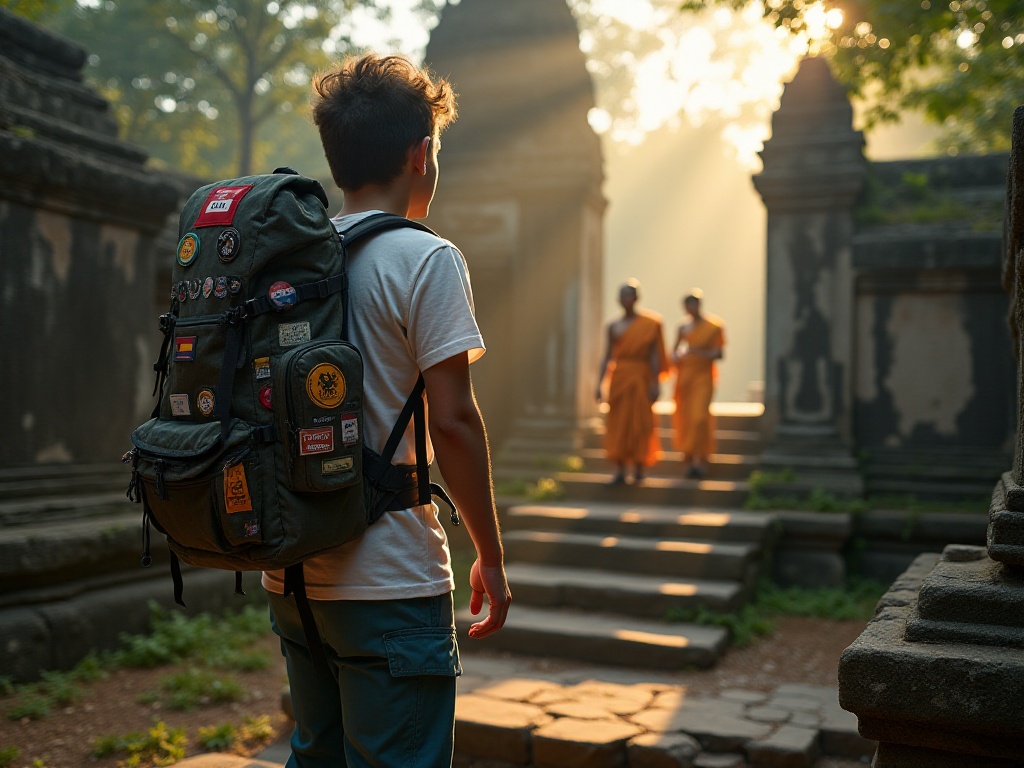
After six months of travel, my biggest realization is that backpacking isn't just a way of traveling but a life attitude. It taught me how to live simply, communicate with people from different cultural backgrounds, and maintain an open and adaptable mindset in unfamiliar environments.
Materially, I learned to live simply. A backpack, a few changes of clothes, and a laptop - these simple items were enough to support my life on the road. This made me understand that what's truly important isn't how much you own, but what experiences these things bring you.
In terms of cultural exchange, I learned to accept different cultures with a more open mind. I remember participating in a local New Year celebration in a small Cambodian village. Despite the language barrier, we could still understand each other through body language and sincere smiles, sharing the joy of the festival together.
Regarding mindset adjustment, I learned to better handle uncertainty. Travel inevitably involves various unexpected situations: flight delays, accommodation cancellations, lost luggage, etc. But these experiences taught me that rather than complaining about things we can't change, it's better to find solutions and learn from the experience.
According to 2023 survey data, over 40% of millennials globally choose backpacking as their primary travel mode. In Asia, this number has grown by nearly 60% over the past five years. These statistics reflect young people's desire for freedom, independence, and cultural exchange. Our generation is no longer satisfied with traditional tourism methods, preferring deep experiences and self-exploration.
Now, I'm no longer the novice who knew nothing about backpacking. This six-month journey not only showed me the world's vastness but also gave me a deeper understanding of myself. I realized that travel's meaning isn't about how many places you've been or how many photos you've taken, but about how the people and experiences encountered along the way change you.
Everyone has their own way of traveling, and backpacking is just one option. But if you're like I was, yearning for an authentic travel experience and wanting to break out of your comfort zone, try picking up a backpack and starting your own journey. Trust me, it will be a life-changing adventure.
So, are you ready to start your backpacking journey?
 Previous
Previous

